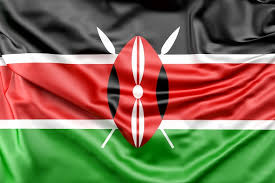Editorial: A Call for Accountability and Change

Yesterday, the Finance Bill 2024 passed in a majority vote in Parliament, despite protests across the country that it would worsen the future in an already struggling society. While the session was ongoing, and with the opposition side having withdrawn all its proposed amendments, the country was on edge, with thousands of people on the streets.
What has happened before and since is the shooting of unarmed protestors, both during the day and later into the night, even in residential areas. Protestors breached Parliament, setting part of the legislature on fire and forcing legislators to flee. Outside, in both the capital and major urban areas, there was significant destruction and looting of public and private property.
We strongly condemn the violation of protestors rights, which has led to multiple deaths and injuries; the indiscriminate shooting that is still ongoing in some areas at the time of writing; the destruction and looting of private and public property; and the ongoing abductions of content creators, satirists and other citizens without due process. Kenya has worked far too much to heal from such affronts to democracy to regress so far so fast.
While the Finance Bill 2024 is the most immediate trigger for the current situation, there has been social angst going back years, as the macroeconomic situation has progressively worsened the cost of living, the cost of doing business, and the general quality of life in Kenya.
Despite clear evidence that raising taxes simply raises prices, curbs demand and creates a cycle of even lower tax collections, finance bills over the last few years have sought to add the tax burden on individuals and enterprises. The result is that it is harder to do business in Kenya, and so it is harder to create economic opportunities that permeate through society.
To make it worse, the political class and public policymakers have been unresponsive to the plight of citizens, choosing instead to focus on the singular goal of keeping the country creditworthy in international debt markets as it seeks the help of Bretton Woods institutions to meet repayment deadlines.
While a noble goal by itself, the IMF-imposed structural adjustment measures should not have taken precedence over the plight and economic goals of the people. For young people, fresh into adulthood and with no chance of making a decent living in their own country, this has resulted in communal frustration that has now escalated into the worst national crisis in recent times.
As the decisions at the top have permeated into everyday life as higher cost of living and fewer chances of success for many citizens, the political class has not visibly taken any measures to cut back on government largesse or even the wanton corruption that consumes so much of the budget. We now have a national crisis ongoing: there is blood on the streets, there has been unnecessary loss of life, extensive economic losses, and there is a general anxiety about the future of Kenya.
A government should not be at war with its people, because it derives its existence from them. It is accountable to them, not the other way around. To treat this as merely a national security problem is to miss the big picture, that it is essentially about the future of Kenya, by the future of Kenya.
It is time for a national conversation, which must begin with accountability for those who have harmed innocent civilians, those who’ve destroyed public and private property, and those who have worsened this crisis by omission or commission, including in policymaking.
The goal should be to begin the process for the changes that citizens are demanding for, but to do that without first addressing the many, tragic mistakes of the past few weeks would not only worsen the situation. It would be short-sighted to imagine that the current situation is only about the tax measures in the Finance Bill, and to expect that it will dissipate once it becomes law.
There have been many missed opportunities, in the past few days, weeks, and even months, to de-escalate the current crisis. The next best time is now.



